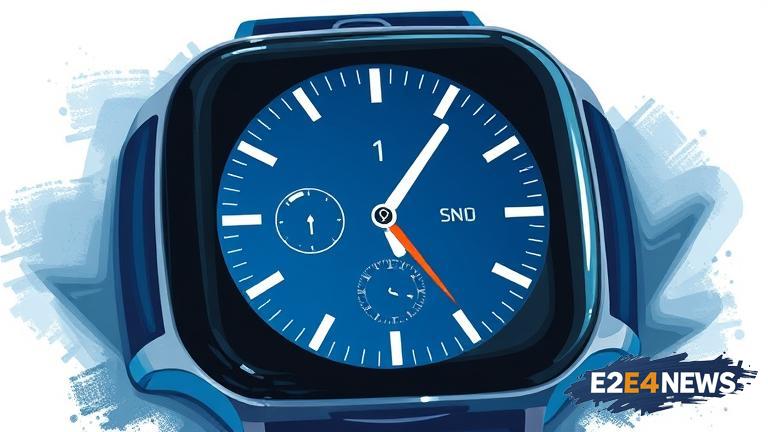The use of smartwatches to track sleep disorders is becoming increasingly popular, with many people turning to these wearable devices to monitor their sleep patterns. Sleep disorders, such as insomnia and sleep apnea, affect millions of people worldwide, causing fatigue, decreased productivity, and a range of other health problems. Traditionally, diagnosing sleep disorders has been a challenging and time-consuming process, involving overnight stays in sleep clinics and cumbersome equipment. However, with the advent of smartwatches, patients can now track their sleep patterns in the comfort of their own homes. These devices use advanced algorithms and sensors to monitor sleep quality, duration, and stages, providing valuable insights for doctors and patients alike. By tracking sleep patterns over time, smartwatches can help identify potential sleep disorders, allowing for early intervention and treatment. This can be especially beneficial for people who are unsure if they have a sleep disorder or are experiencing symptoms such as excessive daytime sleepiness. Furthermore, smartwatches can also track other health metrics, such as heart rate, blood pressure, and physical activity, providing a more comprehensive picture of a person’s overall health. The data collected by smartwatches can be shared with doctors, allowing them to make more informed diagnoses and develop personalized treatment plans. In addition, smartwatches can also be used to track the effectiveness of treatments, such as cognitive behavioral therapy for insomnia. While smartwatches are not a replacement for traditional sleep disorder diagnosis methods, they can be a useful tool for patients and doctors alike. Many smartwatch manufacturers are now incorporating advanced sleep tracking features into their devices, making it easier for people to monitor their sleep patterns. Some smartwatches can even detect sleep disorders such as sleep apnea, which can be a major contributor to cardiovascular disease. As the technology continues to evolve, it is likely that smartwatches will play an increasingly important role in the diagnosis and treatment of sleep disorders. Overall, the use of smartwatches to track sleep disorders is a promising development that has the potential to improve the lives of millions of people worldwide. With their ability to track sleep patterns, monitor health metrics, and provide valuable insights for doctors, smartwatches are revolutionizing the way we approach sleep disorder diagnosis and treatment. As research continues to uncover the benefits of smartwatch-based sleep tracking, it is likely that these devices will become an essential tool for anyone looking to improve their sleep quality and overall health.
